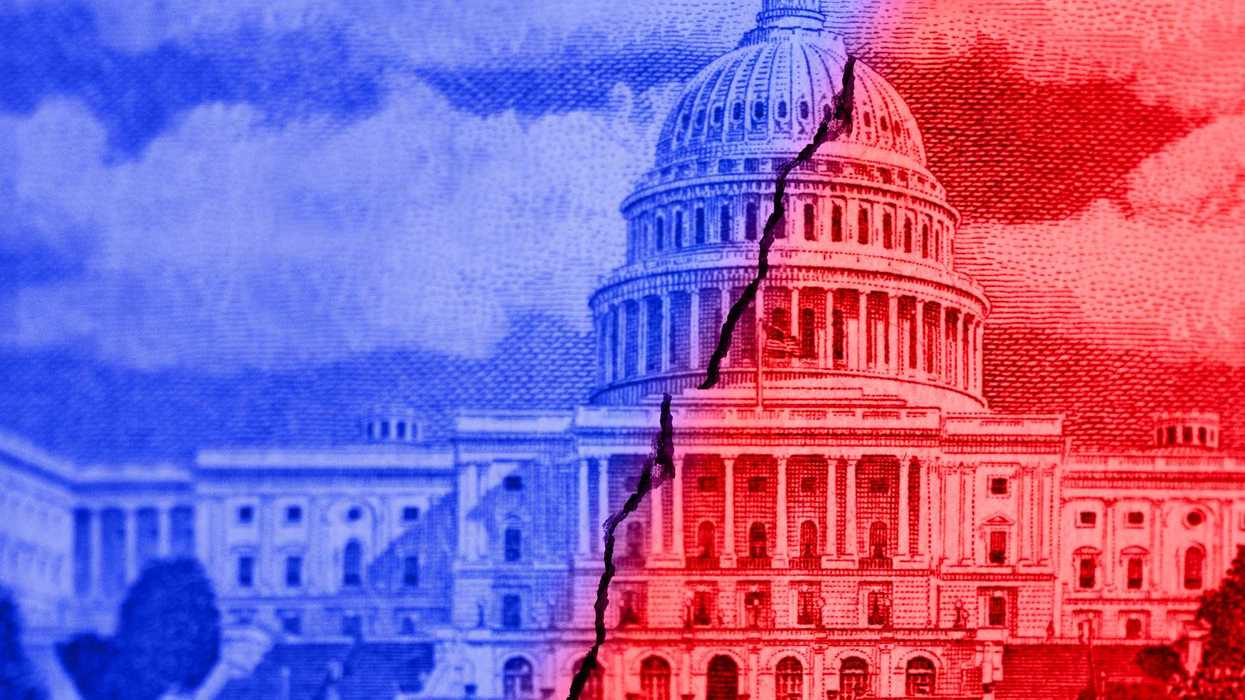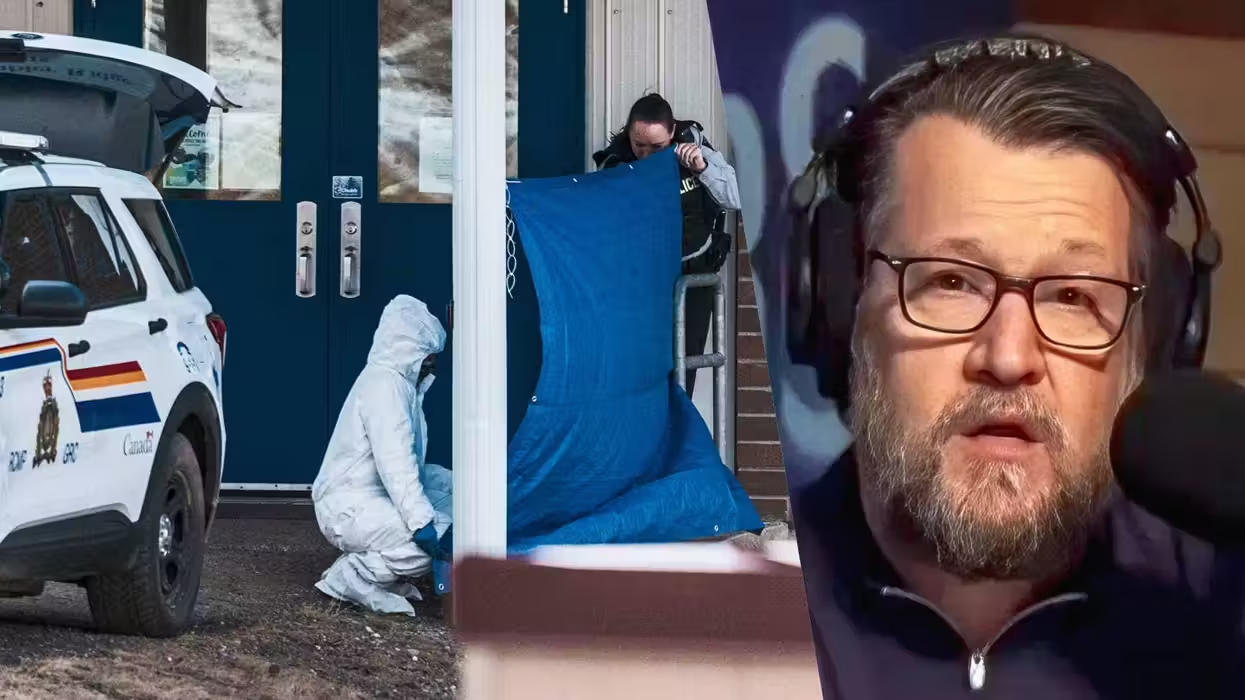
© 2026 Blaze Media LLC. All rights reserved.
FBI General Counsel: Ability for Law Enforcement to Access Real-Time Email, Online Chat a 'Huge Priority
March 27, 2013
"... there is room for a healthy debate..."
In a meeting with the American Bar Association last week, Slate reports the FBI General Counsel Andrew Weissmann saying it was a "top priority" of the agency to push for law reform that would allow it to access emails, chat and other information in real-time on the Web.
 FBI General Counsel Andrew Weissmann (Image: C-SPAN screenshot)
FBI General Counsel Andrew Weissmann (Image: C-SPAN screenshot)
Weissmann's speech at an ABA Standing Committee on Law and National Security at the National Press Club on the "Legal Challenges Posed by New Technologies" comes amid recent talk of government email snooping.
During the talk, someone brings up the issue of "going dark," which is the idea that widespread use of online communication has stifled law enforcement's abilities to intercept communications as it used to with traditional methods. Slate pointed to a 2011 FBI testimony on the topic from then General Counsel Valerie Caproni who wrote:
[...] some providers are currently obligated by law to have technical solutions in place prior to receiving a court order to intercept electronic communications, but do not maintain those solutions in a manner consistent with their legal mandate. Other providers have no such existing mandate and simply develop capabilities upon receipt of a court order. In our experience, some providers actively work with the government to develop intercept solutions, while others do not have the technical expertise or resources to do so. As a result, on a regular basis, the government is unable to obtain communications and related data, even when authorized by a court to do so.
"You're talking about obtaining real-time information not stored right?" the female questioning Weissmann said.
"That's right," Weissmann responded. Earlier in the speech he pointed out that the wish for real-time interception is because in the cyberworld, some information can be stored for as short a time period as five minutes before it's wiped from the Web completely. It is in these cases where he says it might be attractive for criminals to use services with limited storage times and why law enforcement would want access.
Weissmann references the 1994 Communications Assistance for Law Enforcement Act, which says the communication provider has to include technology that would allow law enforcement to conduct surveillance, but, as Slate pointed out, this doesn't apply to email, instant chat or video services, or the cloud.
The FBI wants access to these services -- even apps like games where chat is involved because "those communications are being used for criminal conversations."
Here's an example from Slate regarding the issue:
Because Gmail is sent between a user’s computer and Google’s servers using SSL encryption, for instance, the FBI can’t intercept it as it is flowing across networks and relies on the company to provide it with access. Google spokesman Chris Gaither hinted that it is already possible for the company to set up live surveillance under some circumstances. “CALEA doesn't apply to Gmail but an order under the Wiretap Act may,” Gaither told me in an email. “At some point we may expand our transparency report to cover this topic in more depth, but until then I'm not able to provide additional information.”
Weissman said the FBI is working with other agencies on a proposal that could be brought to Congress to give law enforcement the capabilities they seek for real-time communication tracking.
"It is a huge priority for the FBI to have this move forward," Weissman said in his speech.
Later, another in the audience calls up "technological neutrality." The idea, as the questioner explains it, is if the FBI wanted to obtain information from a hard drive, they would need a warrant, but if they wanted info that was stored on a cloud, they seem to be trying to preserve ways to obtain it without a warrant, namely through subpoenas.
"I certainly am sympathetic of people's expectations of where, of how they keep things ...it's definitely one that's evolving," Weissmann said. "I don't know that I would go so far as to say that our view is not 'technologically neutral,' because I think the law right now really does differentiate whether you're keeping something at home or whether you're giving it to a third party. But I do think there is room for a healthy debate on that and I think the department has ... shown sort of admirable movement on trying to analyze those issues."
"There is an effort to rethink whether all of of those lines certainly in the current [Electronic Privacy Communications Act' statute are correct," Weissmann said.
Watch C-Span's full video recording of the speech here.
--
Related:
- What's All This Talk About Government Email Snooping? Does It Affect Me?
- Law Enforcement Wants Your Text Messages Stored for Investigations
- Here’s How Authorities Can Legally Spy on Your Digital Life (And Congress Could Make It Easier)
- Read Obama’s Latest Executive Order and Directive Regarding ‘Infrastructure Security’
Want to leave a tip?
We answer to you. Help keep our content free of advertisers and big tech censorship by leaving a tip today.
Want to join the conversation?
Already a subscriber?
more stories
Sign up for the Blaze newsletter
By signing up, you agree to our Privacy Policy and Terms of Use, and agree to receive content that may sometimes include advertisements. You may opt out at any time.
Related Content
© 2026 Blaze Media LLC. All rights reserved.
Get the stories that matter most delivered directly to your inbox.
By signing up, you agree to our Privacy Policy and Terms of Use, and agree to receive content that may sometimes include advertisements. You may opt out at any time.






